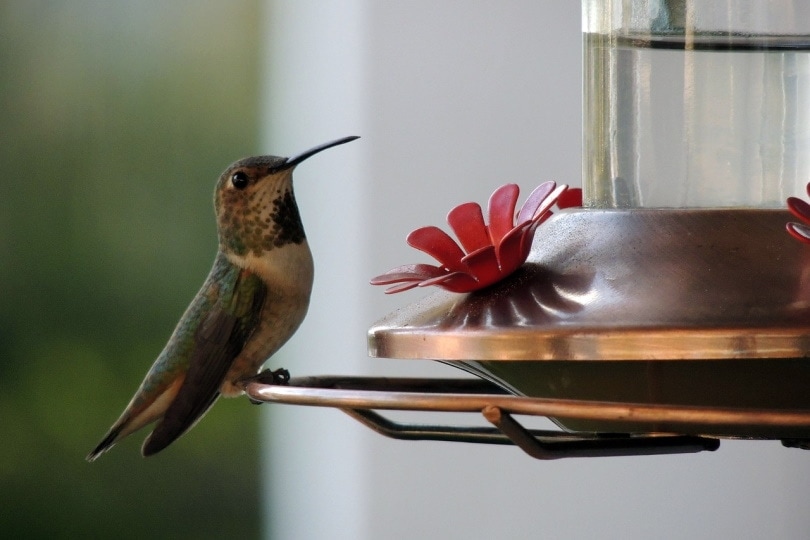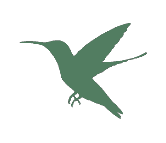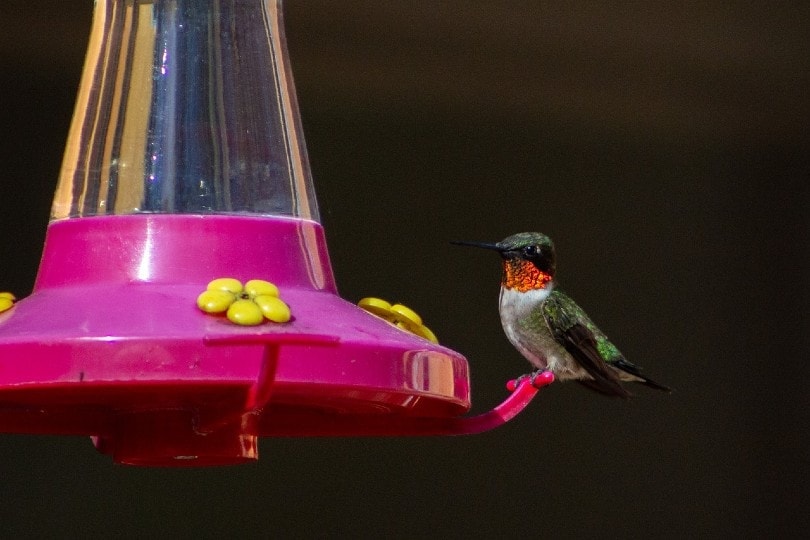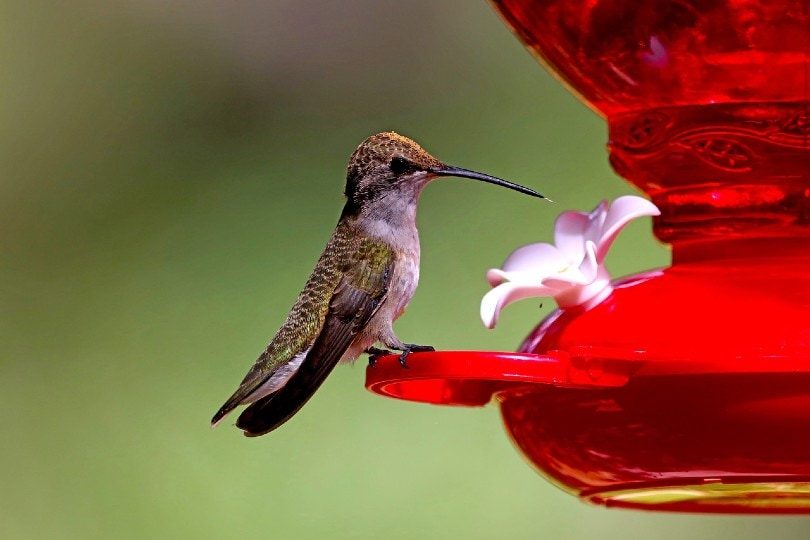When To Stop Feeding Hummingbirds
Last Updated on

If you are anything like us, you enjoy having bird feeders around the home because they are fun to watch, and if you have cats, it can be a great way to entertain them while you’re at work. One of the most common questions we’ve gotten from people that own bird feeders is when to stop feeding the hummingbirds. The short answer is early November. However, there are many other factors to consider, so keep reading while we discuss location, migration, and other factors to help you be better informed.

Does Feeding Hummingbirds Prevent Them from Migrating?
The main reason so many people ask when to stop feeding hummingbirds is because of a popular myth that states feeding hummingbirds will prevent them from migrating. Fortunately, this myth is completely untrue, and feeling them will only help strengthen them for their long journey ahead. Therefore, you should keep the feeder full until the last Hummingbird has left, and some bird enthusiasts recommend leaving them up another two weeks in case a late straggler passes through and needs the nutrients.

Location
One of the main factors that will determine when you stop feeding your hummingbirds is your location. If you live in a colder climate, you can safely remove your feeders earlier in the year. In some northern states, hummingbirds will move south as early as September, and you can take down the feeders in late September or early October. As you move south, the climate will get warmer, and you will need to leave the feeders out longer. Some can stay out till mid or even late-November, and a few states have hummingbirds all year long, so your feeders can stay out.
States Where Hummingbirds Live All Year
- Texas
- Florida
- Arizona
Hummingbird Migration
When hummingbirds migrate, the males will go first. Now is the best time to have the feeder up because if the male gets nourished at your feeder for its long journey, it will return every year. The female and juveniles will follow the males, so they too will return year after year, so it’s important to leave the feeder up until they finish.

Other Considerations

Do I need to change the nectar in the feeder?
It’s important to keep the nectar in the feeders fresh, so you will need to change it every four or five days, even if no birds use it.
Are there downsides to feeding a Hummingbird?
No, there are no downsides to feeding a Hummingbird. You will be providing it with important nutrients that are vital before it migrates south for the winter. These nutrients can help ensure that the bird arrives safely and make it more likely to return next year.
Do I need to purchase special Hummingbird food?
No. One part ordinary white sugar to four parts water is the ideal Hummingbird food. Boil the solution and let it cool before adding it to your feeder. Boiling will help remove any impurities in the water and sterilize it for the birds.
Should I put red coloring in the nectar?
No. While hummingbirds are attracted to the red color, the dye can be harmful to their health.
Shouldn’t I use brown sugar or other natural sugar to create the nectar?
No. These natural foods can contain other ingredients that might be harmful to the Hummingbird. The best option is to use pure refined white sugar.
How often should I clean the feeder?
You will need to clean the feeder at least twice a week during the summer as the warmer temperatures will degrade the solution. In the early fall, when temperatures are cooler, you can probably get away with cleaning it once a week. Clean the feeder with only warm water as it is solutions can leave behind a residue that drives away the birds.

How can I attract hummingbirds to my feeder?
If you struggle to get hummingbirds to your feeder, you can try planting red or orange flowers. Hummingbirds love the color red, so any red objects you place near the feeder will help attract the birds. Unfortunately, it can sometimes take quite a while before hummingbirds find and use your feeder and all you can do is wait.
Related Read: How to Keep Squirrels Out of Hummingbird Feeders

Conclusion
We recommend leaving your Hummingbird feeders out until you haven’t seen any hummingbirds for several weeks, which in most states will be mid-October through mid-November. Stragglers might be coming through late, and if they find your feeder, they will likely return next year. You will need to keep the feeder and nectar clean even if no birds are visiting because it can go bad and cause health issues.
We hope you have enjoyed reading over this short guide and found the answers you need. If we helped you know when to put away your feeding station, please share our look into when to stop feeding Hummingbirds on Facebook and Twitter.
Featured Image Credit: marcellodamico0, Pixabay
Table of Contents
- Does Feeding Hummingbirds Prevent Them from Migrating?
- Location
- Other Considerations
- Do I need to change the nectar in the feeder?
- Are there downsides to feeding a Hummingbird?
- Do I need to purchase special Hummingbird food?
- Should I put red coloring in the nectar?
- Shouldn’t I use brown sugar or other natural sugar to create the nectar?
- How often should I clean the feeder?
- How can I attract hummingbirds to my feeder?
- Conclusion
About the Author Ed Malaker
Ed Malaker is a veteran writer who contributes to a wide range of blogs covering information on computer programming, pets, birding, tools, fitness, guitars, and optics. Outside of writing, Ed is often found working in the garden or performing DIY projects in the house. Ed is also a musician, spending his time composing music for independent films or helping people repair their guitars.
Related Articles:
When Were Binoculars Invented? History, Today & Future
How to Clean a Refractor Telescope: Step-by-Step Guide
How to Clean a Telescope Eyepiece: Step-by-Step Guide
How to Clean a Rifle Scope: 8 Expert Tips
Monocular vs Telescope: Differences Explained (With Pictures)
What Is a Monocular Used For? 8 Common Functions
How to Clean a Telescope Mirror: 8 Expert Tips
Brightfield vs Phase Contrast Microscopy: The Differences Explained
